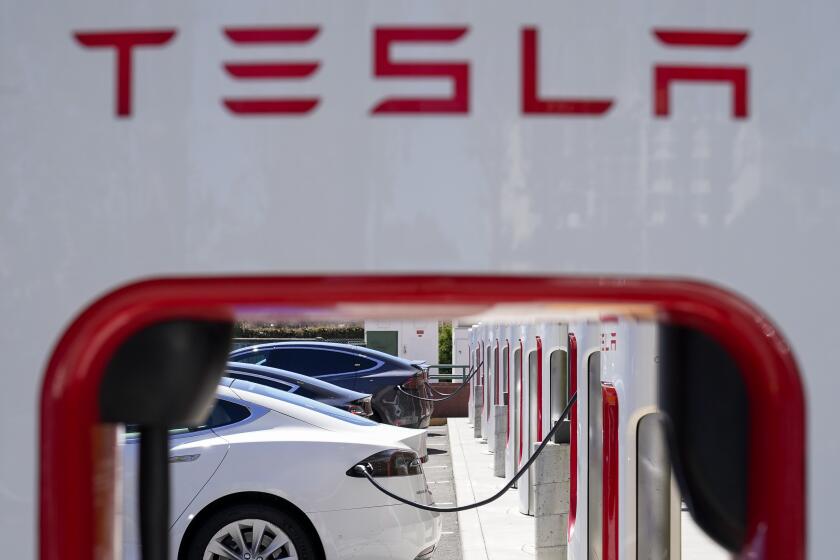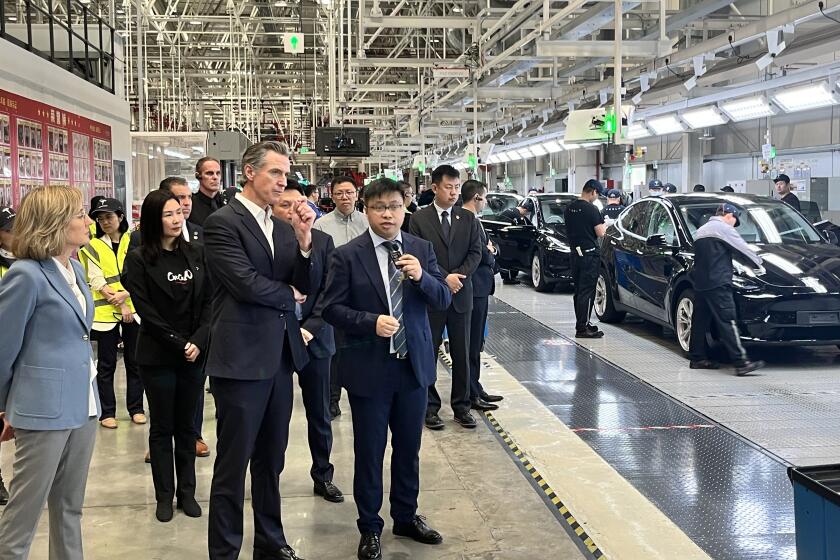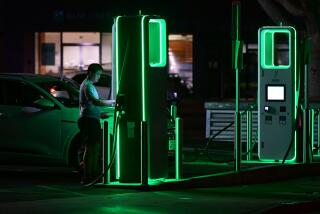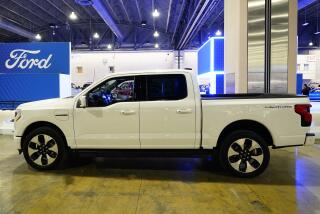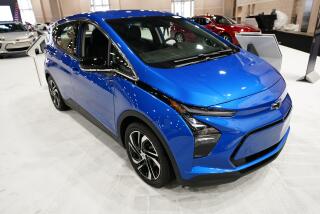As EV growth slows, Tesla falls behind China’s BYD in quarterly sales
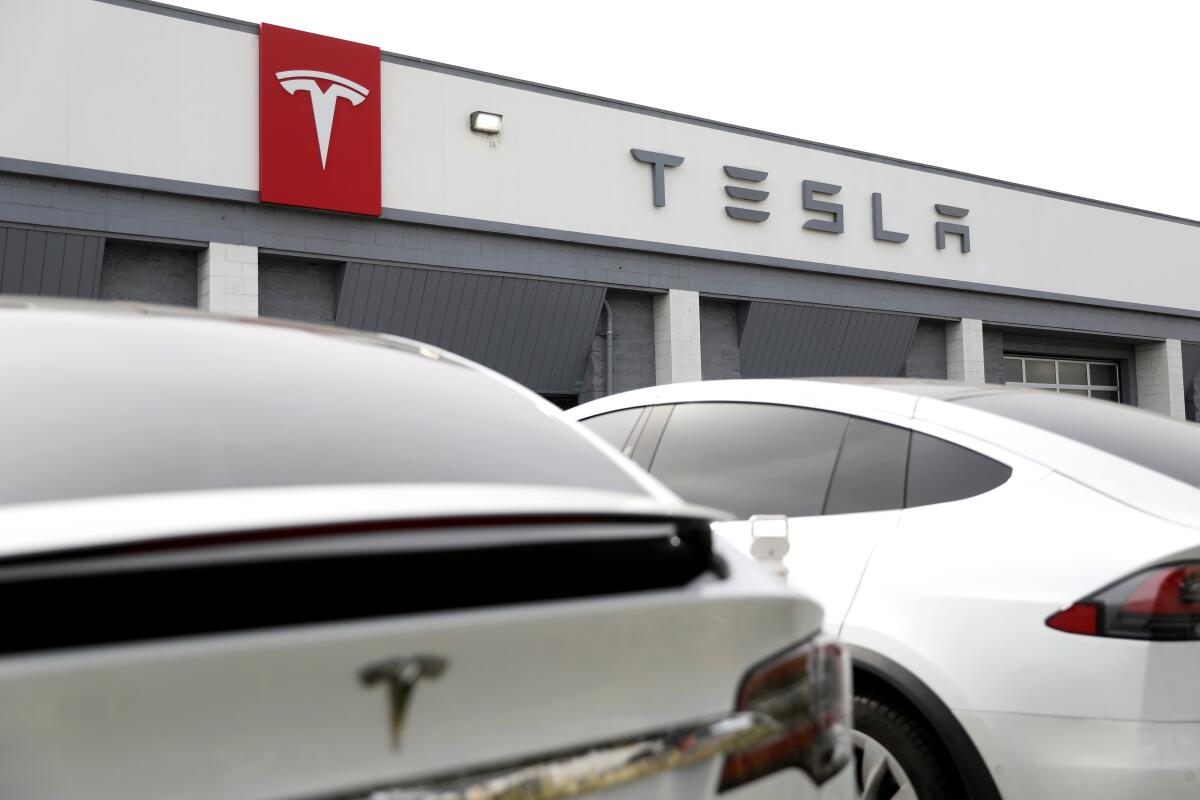
Tesla delivered more vehicles than expected in the fourth quarter, though not enough for the Elon Musk-led company to stay ahead of China’s BYD in global electric car sales.
Tesla handed over 484,507 vehicles in the last three months of 2023, beating analysts’ average estimate of 483,173 deliveries. BYD sold 526,409 fully electric vehicles in the quarter to become the new No. 1 in EVs, driven mainly by its much broader lineup of cheaper models in China.
Although Tesla exceeded its target to deliver 1.8 million vehicles for the year, the Austin, Texas, carmaker came up well short of an upside scenario Musk touted 12 months ago. After the chief executive told analysts the company had the potential to produce 2 million cars, a series of price cuts failed to stoke enough demand to support that much output.
The carmaker is likely to deliver more than 2.1 million vehicles in 2024, despite a cloudy outlook for overall EV demand, Ben Kallo, an analyst at Baird, estimated in a research note.
Shares of Tesla pared an early dip of as much as 1.6% Tuesday to trade little changed at $248.42 as of market close. The stock soared 102% last year, rebounding from a record loss in 2022 linked to Musk’s takeover of Twitter, the social media company now known as X.
Tesla is recalling more than 2 million vehicles across its model lineup to fix a defective system that’s supposed to monitor drivers using Autopilot.
The change in EV sales rankings reflects China’s growing clout in the global automotive industry. After surpassing the U.S., South Korea and Germany the last few years, China may have overtaken Japan as the world’s largest passenger car exporter in 2023.
Tesla generates more revenue and profit than BYD because it sells much higher-priced vehicles and relies on just two models for the lion’s share of its sales. The Model Y sport utility vehicle and Model 3 sedan accounted for 95% of deliveries in the fourth quarter.
Despite a strong position in its home market of China, BYD doesn’t sell in the U.S., where its vehicles would face a 27.5% import tariff and other hurdles.
“In the U.S., Tesla is still the dominant EV name,” Dan Levy, an analyst at Barclays, said in a Bloomberg TV interview
Musk added another model to Tesla’s lineup late last year, starting sales of the Cybertruck years behind schedule. The company didn’t break out how many of the stainless-steel-clad pickups it produced and delivered before year-end.
Gavin Newsom is mesmerized by the growth of driverless cars. Other California Democrats, not so much
The governor’s effusive comments about autonomous vehicles come as the technology is roiling California cities, with lawmakers demanding change.
The Cybertruck launch marked Tesla’s entry into the highly competitive truck market in the U.S. Musk has cautioned that it may take the company 12 to 18 months to reach volume production and generate positive cash flow with the vehicle, which is difficult to build and packed with new technology.
“You’re not going to get more than 20,000 units in 2024 because it is such a slow ramp,” Levy said of the Cybertruck. “It will draw on some consumers that want more of a lifestyle vehicle. But we don’t see Cybertruck really penetrating that core, large-pickup market, which is used for work purposes.”
Although Tesla doesn’t break out quarterly vehicle sales by region, the U.S. and China are its largest markets. The company makes the Models S, X, 3 and Y in Fremont, Calif., and the Models 3 and Y in Shanghai. It also produces the Model Y at its plants in Austin and outside Berlin.
